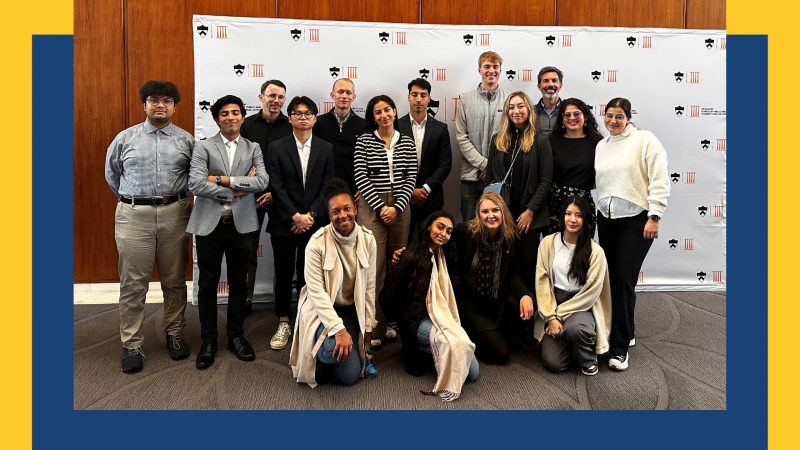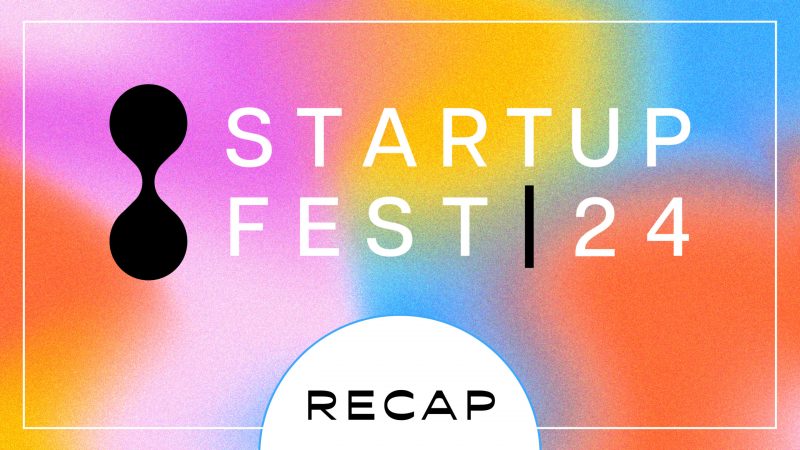What happens when a serial entrepreneur obsessed with fast iteration and product-market fit meets a young visionary driven by sustainability and tech? At Drexel’s Close School of Entrepreneurship, that spark is exactly what fuels transformation, and in this case, it has resulted in two entrepreneurs learning from the strengths of another.
The Shazam of AI
Don Milley, founder of WhatsitAI, is no stranger to risk, feedback, and the messy process of building something new. His startup, a smartphone app that uses AI to identify and value vintage or thrift items, has earned him the title of one of MSN’s Top 10 AI Entrepreneurs Making an Impact in 2025. This feat has earned him a nickname, “the Shazam of AI.” WhatsitAI is revolutionizing reverse commerce by helping users make smarter, more confident buying decisions, whether they are treasure hunting at a garage sale or professional Goodwill hunters.
“We’re turning curiosity into confidence,” said Milley. “People love that they can finally make informed decisions about the stuff sitting in their garage, or the item they just picked up for $2 at a flea market.”
But Don’s impact doesn’t stop at the marketplace. As a mentor with the Close School, he’s helping student entrepreneurs refine ideas, build viable products, and develop their entrepreneurial muscle.
Fast, Honest, and Human-Centered
When asked what defines a successful entrepreneur, Don didn’t hesitate. He emphasized three essential traits: the ability to adapt to feedback, launching a minimum viable product (MVP) early, and being resilient in the face of setbacks.
“You’re never going to get everything right from the start. Get something out there, then improve. And when you get knocked down—and you will—just take one step forward each day.”
Don described his entrepreneurial superpower as being able to “zoom in and out”—moving fluidly between big-picture thinking and detailed execution across different disciplines like finance, product, and operations.
Still, he admitted his greatest weakness is impatience. Don said, “I operate with urgency and intensity, and that’s great for building fast,” he said. “But it can create friction when external factors slow you down, like fundraising timelines or red tape.”
As a mentor, Don’s style is collaborative but direct. He loves helping student founders think critically about their decisions, encouraging them to build quickly and learn by doing, while also teaching them how to build repeatable systems and professional habits that go beyond a single project.
“We’re not just building a product,” he said. “We’re building a foundation that students can use throughout their careers.”
From Ghana to Gen Z Fashion-Tech Pioneer
One of Don’s standout mentees is Samira Salifu, a Computer Science major set to graduate in 2026, and the founder of Masari, a fashion-tech platform launching this fall.
Masari takes unsold and secondhand clothing inventory and turns it into curated, shoppable wardrobes styled by Gen Z creators. Influencers on the platform earn commissions and promote sustainable shopping, all while reducing textile waste.
“It’s a win-win for sustainability, creativity, and commerce,” said Salifu.
Her motivation for launching Masari is deeply personal. Growing up in Ghana, she witnessed the devastating effects of textile waste firsthand.
“I remember piles of discarded secondhand clothes washing up on beaches. That memory stuck with me. If I was ever going to work in fashion, I knew it had to be different.”
Although she doesn’t have a traditional fashion background, Samira brings a tech mindset and a strong sense of mission. She first connected with the Close School at Drexel through its Future Fest Innovation Tournament, where she pitched her idea and began receiving mentor support.
What Mentorship Looks Like in Action
Samira credits much of her progress to Don’s mentorship.
“He’s helped me refine the foundation of my business. From connecting me with brands like Nike to sharpening my app’s wireframe and understanding valuation, his advice has been both strategic and deeply supportive.”
Don, in turn, looks for mentees who are driven, curious, and comfortable with ambiguity. He thrives when working with students who are action-oriented, open to feedback, and eager to drop ideas rather than overthink them.
“I don’t hand out step-by-step instructions,” he said. “I help students find clarity in chaos. The ones who embrace that uncertainty tend to grow the fastest.”
For Samira, the clarity and confidence she’s gained from mentorship have been game-changing. “I joined the program because I knew I needed guidance to go further, faster,” she said. “Having mentors in my corner, from product strategy to fundraising, has changed the way I operate.”
A Model for Future Builders
When Don’s enigmatic mindset was mixed with the determination Samira had from her experiences, what came out of it is both a strong foundation and a castle in the air. His final piece of advice for student entrepreneurs is simple, but powerful:
“Talk to a customer. Until you’ve spoken to someone who might actually use your product, you’re just guessing.”
Together, their story is a powerful example of what mentorship for entrepreneurs can achieve: a space where ideas are stress-tested, confidence is built, and the next generation of leaders can find their footing in uncertain terrain.
Want to get involved? Whether you’re an entrepreneur, industry expert, or student looking for a mentor, the Close School of Entrepreneurship is always looking for people ready to build something meaningful.
Contact: Melissa Tevere at mt3288@drexel.edu or Chuck Sacco at cns322@drexel.edu to learn how you can make a difference for student startups.





